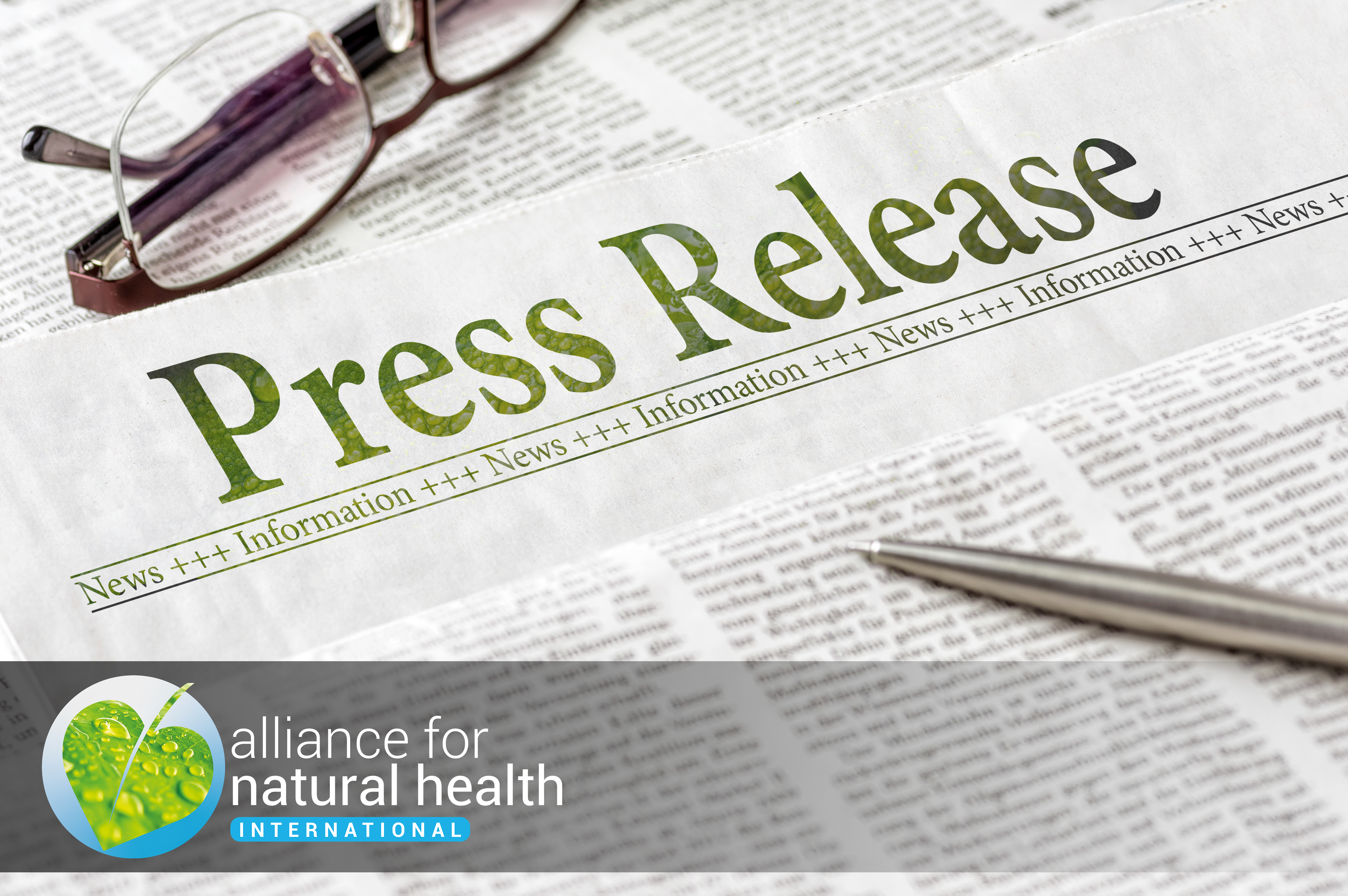Content Sections
EU COMMISSION’S PROPOSALS TO LIMIT VITAMIN AND MINERAL DOSES NOT FIT FOR PURPOSE
A group of scientists and doctors, led by Scientific Director of the Alliance for Natural Health (ANH), Dr Robert Verkerk, and ANH’s Medical Director, Dr Damien Downing, is calling for the European Commission to review the methods it is contemplating using to set maximum permitted levels for vitamins and minerals in food supplements and fortified foods. The scientists claim that the methods being considered are both “unscientific” and “flawed”.
Today the ANH unveils its position paper which explains its reasons for criticising the Commission’s proposals, which are planned to become law EU-wide within the next two years. Robert Verkerk says, “The Commission claims that its methods are scientific but we have found that they do not stand up to scientific scrutiny”.
Under the Food Supplements Directive and Fortified Foods Regulation, the Commission is required to propose maximum and minimum levels of vitamins and minerals for both food supplements and fortified foods. It is expected that the levels will be finalised in 2009 and early indications are that Member States such as the UK, Netherlands, Sweden and Ireland, that have until now allowed relatively high levels, might have to face big reductions in dosages.
Dr Robert Verkerk added: “You know something is wrong when they are thinking of limiting the dose of beta-carotene to the amount you’d find in just two carrots, and restricting selenium to the amount present in less than two brazil nuts. There seems to have been no attempt to test the models against real data. If the Commission really believed these doses might be the highest safe doses, why aren’t they screaming for warning labels to be put on bags of carrots and brazil nuts?”
Dr Damien Downing, also President of the British Society of Ecological Medicine and Editor of the peer reviewed scientific journal, Journal of Nutritional & Environmental Medicine, added: “The methods are simply not fit for purpose. It is the multiple use of safety or uncertainty factors that further compounds the reduction of levels from so-called Safe Upper Levels, that are often overly cautious to begin with. The resulting maximum levels, should these be implemented in law, would prevent many consumers from ingesting the levels of vitamins and minerals needed for optimal health and would also greatly interfere with consumer choice.”
The ANH’s position paper includes a consideration of features that would be required for the development of a new, scientifically valid and proportionate risk management model. Verkerk added: “We believe a new model should be developed within an independent, academic setting rather than being subject to the often conflicting pressures of industrial stakeholders and political processes. We are hoping that concerns about the European Commission’s proposed approach will help it to drastically alter its proposed approach to the determination of maximum levels, which would otherwise be disproportionate in its effect and may in turn be subject to legal challenge.”
ENDS.
NOTES FOR EDITORS
About the European Commission’s proposal
European Commission Discussion Paper, June 2006: http://ec.europa.eu/food/food/labellingnutrition/supplements/discus_ paper_amount_vitamins.pdf Consultation Responses to Discussion Paper: http://ec.europa.eu/food/food/labellingnutrition/supplements/resp_di scus_paper_amount_vitamins.htm
Alliance for Natural Health ANH Position Paper on Maximum Permitted Levels (released 24 October 2007): http://www.alliance-naturalhealth.org/_docs/ANHwebsiteDoc_290.pdf
ANH consultation response (September 2006): http://ec.europa.eu/food/food/labellingnutrition/supplements/docume nts/anh_en.pdf
About the Alliance for Natural Health (ANH)
The ANH was founded in 2002 and is a UK-based, internationallyactive, non-governmental organization, working to help positively shape the regulatory and scientific framework affecting natural health. As an alliance, the ANH brings together, globally, scientists, medical doctors, integrative practitioners, lawyers and consumers, as well as suppliers of food supplements and other health foods, as a means of working towards the development of sustainable approaches to healthcare. The ANH has been involved in extensive consultations with the World Health Organisation, the European Commission, the European Food Safety Authority and a range of EU Member State governments. The ANH brought a legal challenge to the Food Supplements Directive in 2003 which was heard in the European Court of Justice in Luxembourg in 2004-5 where it received important clarification.




